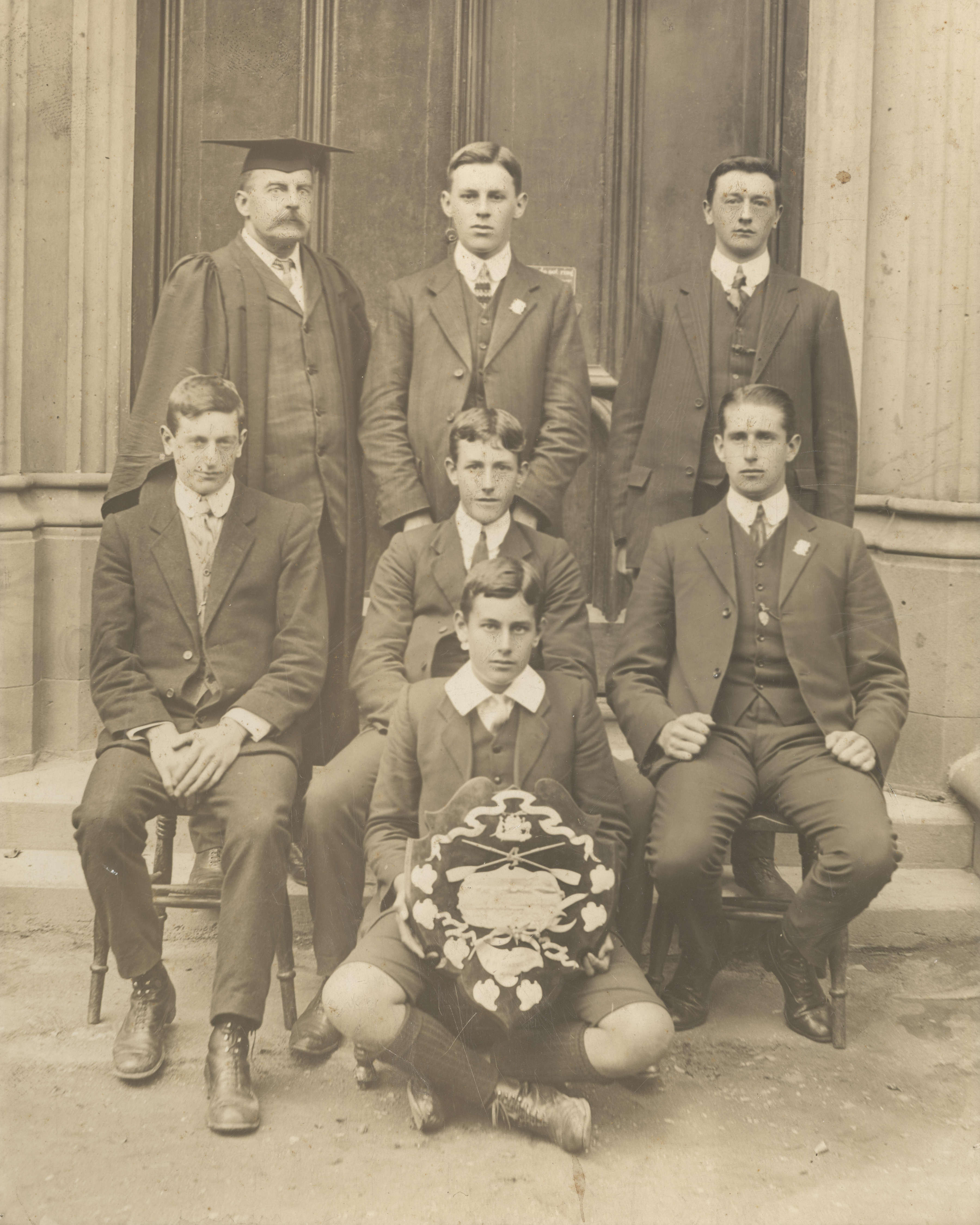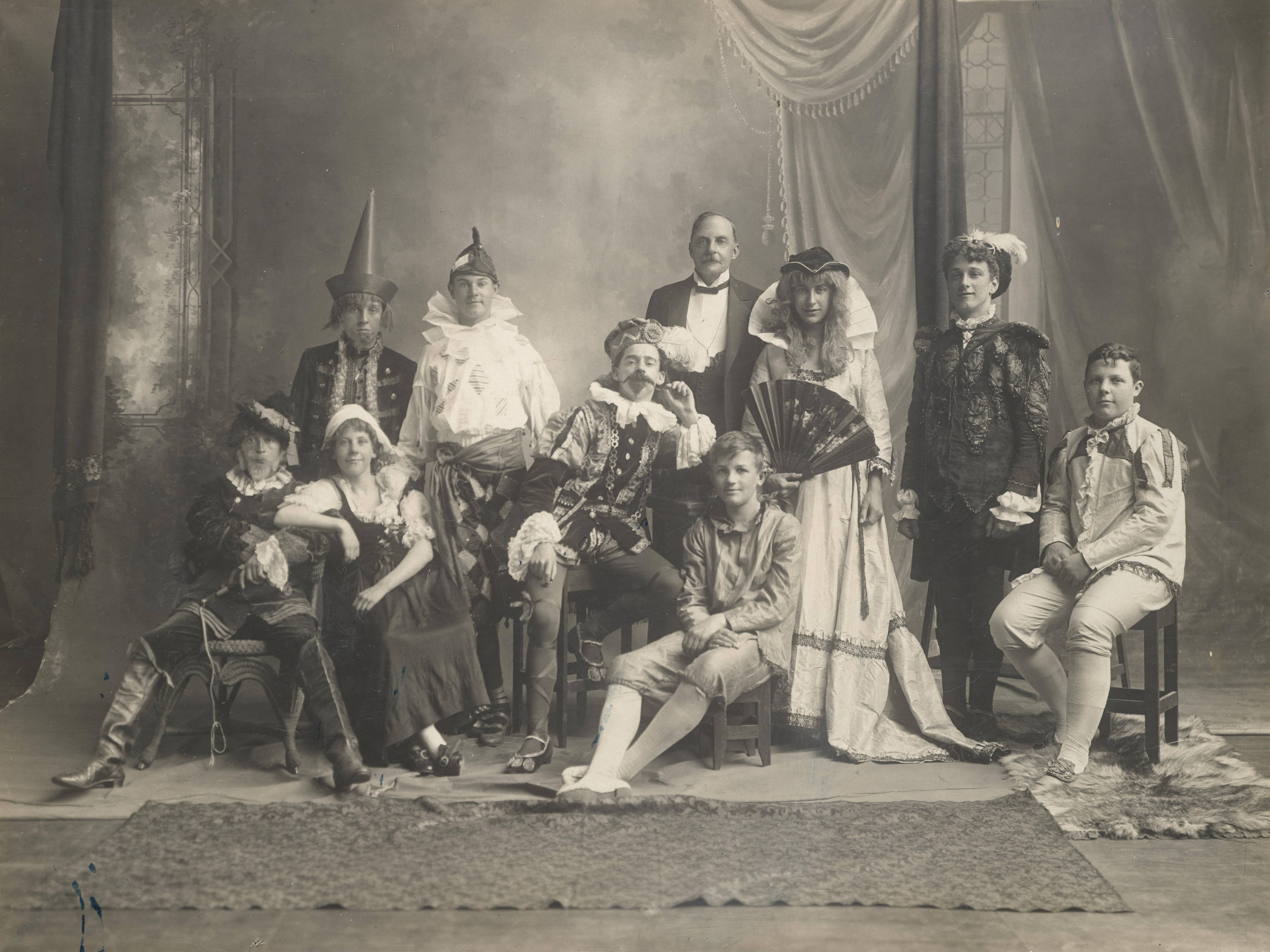Born in Middlesex, England in , Gurney spent time in New Zealand before arriving in Tasmania in . In , he joined the staff at Hutchins as a Junior Master before leaving in to run a boarding school for boys at Carnarvon on the Tasman Peninsula.
Upon leaving the boarding school, Gurney spent 12 years in Ulverstone as the founding Principal of an agricultural college. Gurney returned to Hutchins in as Rev H H Anderson’s co-Headmaster before leaving in to found King’s Grammar School in New Town with former Headmaster of The Friends’ School, Edmund Innes Gower.
King’s Grammar was a resounding success and enrolment reached 80 students. The subjects available were extensive and the school offered many clubs and societies to its students. Near the end of , Gurney and Innes were asked by the Bishop to amalgamate with Hutchins which they agreed to. King’s Grammar School was closed at the end of with the furniture, sports equipment and students moving to the Hutchins Macquarie Street site.
Once King’s Grammar School was amalgamated into Hutchins, Gurney returned as Housemaster and Headmaster of the Lower School, with E I Gower as Senior Mathematics Master. The Headmaster was the Rev E G Muschamp who virtually retired from the School, leaving Gurney as Acting Headmaster for five years. Although Gurney was not officially appointed as Headmaster in his own right, he is recognised today as the fifth Headmaster of the School from – when the School became affiliated with Christ’s College and a Board of Management was created.
Following the affiliation of Hutchins with Christ’s College, Gurney’s period in charge of the School ceased. Overlooked for the position of Deputy Headmaster in favour of A A Stephens, Gurney spent the next 13 years in various positions including resident Housemaster, Bursar of both Christ’s College and Hutchins, Master, running the Cadet Corp and Rifle Club, as well as producing the School productions — including the Dramatic Society’s production of Twelfth Night. His various demands while in these positions are recorded in the Board of Management minutes, including a debate about whether or not he be allowed to keep cows on the premises.
Gurney retired from the School at the end of and passed away early in . He was described as a man of ‘genial manner and kindly disposition’ who was remembered by the junior boys with affection. His thoughtfulness towards his students’ wellbeing and progress was renowned along with his kind, generous and cheerful nature.

